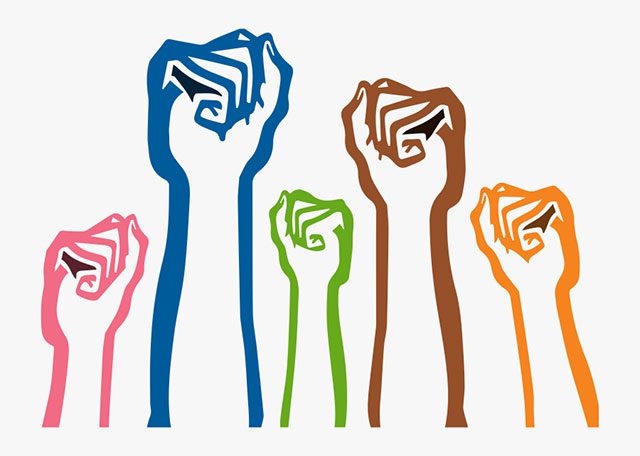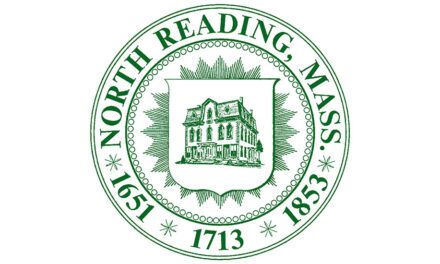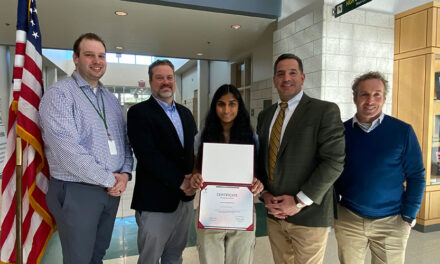Published February 25, 2021

NORTH READING — As Black History Month comes to a close, it is important to remember that the contributions that African Americans have made to society should never be forgotten or be trivialized. With that in mind, the newly-formed Social Activism Club at North Reading High School put together a project as one of its events, with the intention of honoring and commemorating the strength of the Black community. After assembling some student essays and testimonials, the club members hope that the power of student activism and the importance of racial justice are both reflected in our work, and in the Black History Month Project that follows.
The Social Activism Club was formed late last year, alongside a few other new clubs, and was instantly welcomed by the student body. President Shivi Srikanth and Vice President Veronica Stantcheva run the club meetings with a hybrid model, allowing students to attend either in-person or virtually, and meetings are an effective way for students to discuss social topics and brainstorm ideas for club events. In order to truly embody the spirit of collective activism, all opinions and beliefs are welcomed by the club, and all issues are civilly discussed.
This club is meant to fill a gap at NRHS and provide a platform for students to advocate for and speak out on topics about which they are passionate. Students within this group plan to spend the rest of the school year carrying out events and projects which touch on subjects like environmental activism, gender equality and LGBTQ+ awareness. Treasurer Gianna Naulivou, Secretary Lily Joyce and Advisor and NRHS math teacher Edward Blum are just a few of many club members who see a bright future for student activism at the high school.
The following two student essays and 10 “I have a dream” statements were written by club members.
STUDENT ESSAYS
The power of student activism
By Caroline Pecora
Black History Month is a celebration of the countless remarkable achievements made by individuals in the black community. Martin Luther King Jr., for example, is considerably one of the best figures who represent peaceful activism. However, Black History Month is about more than the past – it’s about the future. Why do we learn about history in school? The answer is simple: we learn about the past so that we can lead a better future. With that in mind, February is one month out of the year where we are asked to reflect on the many accomplishments of the Black community in hopes of bettering ourselves.
As a student at North Reading High School, I don’t think I can emphasize enough the importance of student activism and engagement. Throughout this past year especially, the younger generation has proven just how powerful we truly are. Yet, I think the “student” part of “student activism and engagement” is sometimes forgotten. It is up to us, as high schoolers and middle schoolers, to fight against injustice in order to secure a bright future, and it is up to the older generations to hear us out and listen. For everyone: to be an advocate for anything, remaining informed and educated on the subject matter is the most important step.
Black History Month is the perfect time to educate yourself, especially when we live in a homogeneous town where it can be difficult to find other opportunities to discuss the topic of diversity. It’s also a great chance to teach children about Black history. Once again, our youth are our future. By teaching children about what it means to be an ally, we are setting up an environment which can impact Black lives positively. Better yet, we are setting up an environment where everyone, regardless of race, sex, religion, ability and sexual orientation, is provided equality, equity and justice.
Caroline Pecora is a junior at North Reading High School and a passionate advocate for human and environmental rights. In school, she is a member of the Social Activism Club and Student Council, both of which provide great opportunities to be a leader in the community. Outside of school, she takes those same leadership and teamwork skills to her dance team at the Dancing School in North Reading.
The history behind “Black History Month”
By Samantha Magner
Our group, the Social Activism Club, works to promote and advocate for certain topics, and this month we have written “I have a dream…” statements that reflect race-related issues that are important to us – the students of North Reading High School. We aim to advocate for topics that are relevant today and work to encourage healthy debate among students at our school. All opinions and ideas are welcome.
So, with that being said, welcome to Black History Month, the annual celebration of African American citizens and their core role in the history of our nation. However, only in recent times have Black Americans been recognized for their integral role as the backbone of the American media, the economy and democracy.
Beginning in 1915, the Association for the Study of African American Life and History (ASALH) was founded by Carter G. Woodson and Jesse E. Moorland. Black History Month was first recognized in 1976 by President Gerald Ford and has since been endorsed by presidents every February. President Barack Obama said during a Black History Month speech in 2016: “…But Black History Month shouldn’t be treated as though it is somehow separate from our collective American history…It’s about the lived, shared experience of all African Americans, high and low, famous and obscure, and how those experiences have shaped and challenged and ultimately strengthened America.”
And so, it is important to always strive to learn a little more about the world we live in, and the issues that continue to plague it. If you’re interested in donating to some beneficial charities that support the Black community, consider the NAACP, The Loveland Foundation or the ACLU.
Samantha Magner is a junior at North Reading High School and an advocate for changes in the criminal justice system as well as issues like antiracism and gender equality. She is a member of the Social Activism Club and is a core writer for the school newspaper – The Deliberator.
MLK Jr. “I have a dream…” statements:
The following are some statements that students at North Reading High School wrote, reflecting on their hopes and dreams for the future of our country.
“I have a dream that, one day, this nation will abolish hiring discrimination and that a person will be hired based on their merits and not the color of their skin.”
– Claire Grant, 12th grade
“I have a dream that, one day, social justice and change will no longer be a partisan issue, and that substantial social change will be brought to the United States and countries worldwide to improve the lives of others and promote equality.”
– Wesley Fisher, 11th grade
“I have a dream that people of all colors, beliefs and identities can live together in harmony and on a planet that shall remain sustainable for future generations to come.”
– Preston Lydotes, 12th grade
“I have a dream that, one day, systemic racism will not be a politicized issue, but one that all Americans can agree to overcome and create equal opportunities for the many that do not have them.”
– Adam Bakr, 11th grade
“I have a dream that, one day, no American of any color fears unfair and harsh treatment from officers of the law.”
– Emma Galbraith, 10th grade
“I have a dream that when I’m talking to my friend on Zoom she won’t tell me that kids at her school are calling her slurs and derogatory terms.”
– Samantha Magner, 11th grade
“I have a dream that, one day, the color of a person’s skin will no longer dictate their role in this world. I dream that children of color will no longer have to be taught how to behave in front of the police. I have a dream that police will treat everyone, no matter skin color, sexual orientation or religion, with respect.”
– Emma Mini, 11th grade
“I have a dream that, one day, schools across the nation will teach Black history to all students and educate them on how to advocate for racial equality.”
– Nicole Steinmeyer, 11th grade
“I have a dream that a stereotype will no longer define the color of your skin, or determine what you can and can’t achieve.”
– Turfa Sarfaraz, 11th grade
“I have a dream that, one day, every single human on this planet will feel loved by others regardless of their class, gender, religion or race.”
– Rodela Alam, 11th grade.



